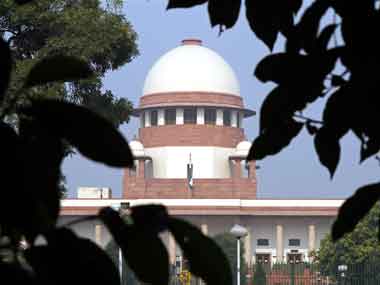The Law Commission of India has asked the Union government to re-evaluate the Judicial Standards and Accountability Bill, 2012 as it could compromise the independence of the judiciary. According to a report in The Times of India
, Chairman of the Law Commission AP Shah has said the bill would have a “debilitating effect on judicial independence” and that it was “against constitutional safeguards to the higher judiciary”. A separate report in the
Indian Express
says Shah is believed to have told the government that a new bill should be drafted, one that “ensures judicial accountability in an effective manner while not adversely affecting judicial independence at the same time”. Shah has made these observations in a note to the government. According to TOI, Justice Shah also had problems with the constitutional validity of one particular provision of the bill that allows complaints from members of the public against a sitting judge of the Supreme Court or High Court that could result in impeachment. He told the paper, “Article 124(5) of the Constitution empowers Parliament to only make laws to regulate the procedure for presentation of address of impeachment and for the investigation and proof of misbehaviour or incapacity of a judge. It does not allow Parliament to create another forum that results in impeachment proceedings resulting from a complaint filed by one person.” He also warned of vendetta litigation due to such a provision. The bill has also proposed a National Judicial Oversight Committee, a Complaints Scrutiny Panel and an investigation committee and Shah has questioned why two committees are needed. [caption id=“attachment_1618599” align=“alignleft” width=“380”] File photo of the Supreme Court building. Reuters[/caption] Another clause of the bill to which the judge took exception is “Clause 3(f) which provides that no judge shall ‘enter into public debate or express his views in public on political matters’”, according to IE. Shah wrote in his note, “This is a widely worded restriction and considerable litigation can be expected to ensue, including several cases of vendetta by losing litigants.” While the independence of the judiciary is much-needed in a democracy like India’s, there’s no doubt that the current system has been facing scathing criticism, most recently following Justice Katju’s revelations on how a corrupt judge of the Madras High Court was allowed to continue due to political pressure. Moreover it has brought into sharp focus the issue of whether the
collegium system should continue or not.
In an opinion piece in the Indian Express
, Faizan Mustafa points out that not just external independence, but the internal independence of the judiciary also needs to be brought back. He writes, “A large number of judges were superseded during the last two decades. Several seniormost chief justices of various high courts, including Justice Shah himself, were not elevated. Some of the finest judges were brought in late to ensure they did not become CJI.” He adds that given that the collegium has come to mean the “opinion of the CJI and four other judges”, it is against the Constitution and notes that “there are no restrictions on the power of the collegium and it virtually has absolute powers in judicial appointments.” Mustafa says neither the current bill nor Justice Shah’s recommendations gives importance to the views of High Court judges when it comes to judicial appointments and that this “a violation of the express provision of the Constitution,” which calls for a “wider consultative process” on appointments.
File photo of the Supreme Court building. Reuters[/caption] Another clause of the bill to which the judge took exception is “Clause 3(f) which provides that no judge shall ‘enter into public debate or express his views in public on political matters’”, according to IE. Shah wrote in his note, “This is a widely worded restriction and considerable litigation can be expected to ensue, including several cases of vendetta by losing litigants.” While the independence of the judiciary is much-needed in a democracy like India’s, there’s no doubt that the current system has been facing scathing criticism, most recently following Justice Katju’s revelations on how a corrupt judge of the Madras High Court was allowed to continue due to political pressure. Moreover it has brought into sharp focus the issue of whether the
collegium system should continue or not.
In an opinion piece in the Indian Express
, Faizan Mustafa points out that not just external independence, but the internal independence of the judiciary also needs to be brought back. He writes, “A large number of judges were superseded during the last two decades. Several seniormost chief justices of various high courts, including Justice Shah himself, were not elevated. Some of the finest judges were brought in late to ensure they did not become CJI.” He adds that given that the collegium has come to mean the “opinion of the CJI and four other judges”, it is against the Constitution and notes that “there are no restrictions on the power of the collegium and it virtually has absolute powers in judicial appointments.” Mustafa says neither the current bill nor Justice Shah’s recommendations gives importance to the views of High Court judges when it comes to judicial appointments and that this “a violation of the express provision of the Constitution,” which calls for a “wider consultative process” on appointments.
Judicial appointments bill 2012: Why the Law Commission wants a new draft
FP Staff
• August 4, 2014, 12:43:37 IST
The Law Commission of India has asked the government to re-evaluate the Judicial Standards and Accountability Bill, 2012 as it could compromise the independence of the judiciary.
Advertisement
)
End of Article